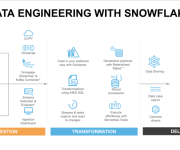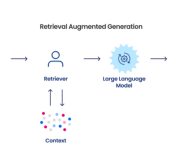Exploring the Frontier: AI’s Impact on Booking Systems
In today’s rapidly evolving digital landscape, Artificial Intelligence (AI) stands as a beacon of innovation, transforming industries across the board. One such domain witnessing a seismic shift is booking systems, where AI is revolutionizing traditional processes, streamlining operations, and enhancing user experiences. From dynamic pricing algorithms to personalized recommendation engines, AI-powered booking systems are reshaping how businesses manage reservations. In this article, we delve into the core elements of AI-driven booking platforms, explore the latest innovations in reservation technologies, discuss the challenges and ethical considerations, and contemplate future directions and opportunities.
The Core Elements of AI-Powered Booking Systems
Artificial Intelligence serves as the backbone of modern booking systems, infusing them with advanced capabilities to meet the demands of today’s consumers. At the heart of AI-driven platforms lie several essential components:
Data Analysis and Processing: AI-powered booking systems leverage vast amounts of data to analyze trends, preferences, and customer behavior. By extracting insights from this data, businesses can make informed decisions to optimize their booking processes.
Machine Learning Algorithms: Machine learning algorithms enable booking systems to learn from past interactions and adapt to changing circumstances. These algorithms power dynamic pricing models, personalized recommendations, and predictive maintenance strategies, enhancing operational efficiency and customer satisfaction.
Natural Language Processing (NLP): NLP enables booking systems to understand and interpret human language, facilitating seamless interactions between users and the platform. Virtual assistants and chatbots equipped with NLP capabilities offer personalized assistance and support, enhancing the overall user experience.
Predictive Analytics: Predictive analytics play a crucial role in forecasting demand, optimizing resource allocation, and mitigating risks. By analyzing historical data and identifying patterns, AI-powered booking systems can make accurate predictions, enabling businesses to stay ahead of the curve.
Innovations in AI-Driven Reservation Technologies
The relentless march of AI innovation has ushered in a new era of reservation technologies, marked by unprecedented levels of efficiency and customization:
Dynamic Pricing Algorithms: Dynamic pricing algorithms dynamically adjust prices based on various factors such as demand, availability, and market conditions. By employing real-time data analysis, businesses can optimize their pricing strategies to maximize revenue while ensuring competitiveness in the market.
Personalized Recommendation Engines: Personalization is key in today’s competitive landscape, and AI-powered recommendation engines excel in delivering tailored suggestions to users. By analyzing user preferences, browsing history, and demographic data, these engines offer relevant recommendations, increasing user engagement and conversion rates.
Virtual Assistants and Chatbots: Virtual assistants and chatbots have become indispensable tools in customer service, providing round-the-clock support and assistance. Powered by AI and NLP, these intelligent agents can handle a wide range of inquiries, from booking inquiries to troubleshooting issues, enhancing customer satisfaction and loyalty. With the advancement of trip AI, these virtual assistants are evolving to offer personalized travel recommendations, itinerary planning assistance, and real-time updates on trip details, ensuring a seamless travel experience from start to finish.
Predictive Maintenance: Predictive maintenance uses AI algorithms to anticipate equipment failures and schedule maintenance proactively. By analyzing sensor data and performance metrics, businesses can identify potential issues before they escalate, minimizing downtime and maximizing operational efficiency.
Challenges and Ethical Considerations
While the benefits of AI-powered booking systems are undeniable, they also pose significant challenges and ethical considerations:
Data Privacy and Security: The proliferation of AI necessitates the collection and analysis of vast amounts of data, raising concerns about privacy and security. Businesses must implement robust data protection measures and ensure compliance with regulatory requirements to safeguard user information.
Bias and Fairness: AI algorithms are susceptible to bias, which can lead to discriminatory outcomes and unfair treatment. It is crucial for businesses to address biases in their algorithms and strive for fairness and transparency in their decision-making processes.
Over-reliance on AI: While AI can enhance efficiency and productivity, over-reliance on automated systems can lead to complacency and reduced human oversight. Businesses must strike a balance between automation and human intervention to ensure accountability and maintain quality standards.
Future Directions and Opportunities
Despite the challenges, the future of AI-powered booking systems is brimming with potential, offering exciting opportunities for innovation and growth:
Integration with Emerging Technologies: AI-powered booking systems are poised to integrate with emerging technologies such as blockchain and the Internet of Things (IoT), enabling new capabilities and functionalities. By harnessing the power of these technologies, businesses can unlock new levels of efficiency and scalability.
Expansion into New Industries: While AI has already made significant inroads in industries like hospitality and transportation, there are still untapped opportunities in other sectors such as healthcare, retail, and entertainment. By expanding into new industries, AI-powered booking systems can address unmet needs and create value for businesses and consumers alike.
Societal Impacts and Ethical Implications: As AI continues to permeate every aspect of our lives, it is essential to consider its broader societal impacts and ethical implications. Businesses must prioritize ethical AI development and deployment, ensuring that AI-powered systems are used responsibly and ethically to benefit society as a whole.
Conclusion
In conclusion, AI-powered booking systems represent a paradigm shift in how businesses manage reservations, offering unparalleled levels of efficiency, customization, and convenience. From dynamic pricing algorithms to personalized recommendation engines, the innovations driven by AI are reshaping the booking landscape. However, these advancements also bring challenges and ethical considerations that must be addressed to ensure responsible AI deployment. Looking ahead, the future of AI-powered booking systems is bright, with endless possibilities for innovation and growth. By embracing AI and its transformative potential, businesses can stay ahead of the curve and deliver exceptional experiences to their customers.




























Leave a Reply